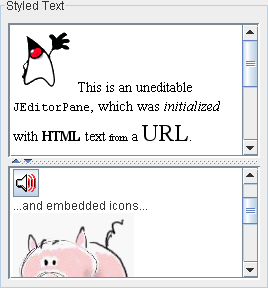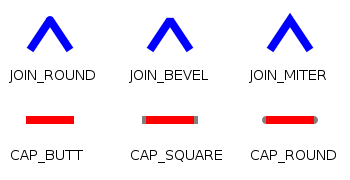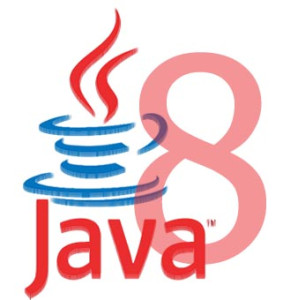
 What is the meaning of single and double underscore before an object name? Consider example: Your application may use ILogger interface for logging errors/debug information, etc. If you had two (or ten) different ways of eating, you could swap them out as needed. What's the simplest way to print a Java array? What purpose are these openings on the roof? You are thinking about it backwards. They are not contracts to remind developers to implement methods. What's the difference between a method and a function? Although composition seems the best way to avoid code duplication in this particular case, this answer tends to make think that interfaces are useless in Java. But you can always call sort on a List of Comparable objects since you know they have a certain order, no matter if they're Numbers, Animals, Computers or anything else (as long as they implement Comparable and define their ordering).
What is the meaning of single and double underscore before an object name? Consider example: Your application may use ILogger interface for logging errors/debug information, etc. If you had two (or ten) different ways of eating, you could swap them out as needed. What's the simplest way to print a Java array? What purpose are these openings on the roof? You are thinking about it backwards. They are not contracts to remind developers to implement methods. What's the difference between a method and a function? Although composition seems the best way to avoid code duplication in this particular case, this answer tends to make think that interfaces are useless in Java. But you can always call sort on a List of Comparable objects since you know they have a certain order, no matter if they're Numbers, Animals, Computers or anything else (as long as they implement Comparable and define their ordering). Sorry about my awful 'typos' Carl just clicked the button without really reading it thoroughly. What is the purpose of a default constructor in Java? Normally, when I write a java application I only create interfaces in the very end, as a helper for future programmers. Using interfaces, you can achieve (complete) abstraction.
 Site design / logo 2022 Stack Exchange Inc; user contributions licensed under CC BY-SA. I'm having difficulties understanding how the "interface" function is useful in Java? But now let's say you have a MathProblem class. Instead of thinking about the implementation first, you think about behavior (as described by the method signature) first. Interfaces are only needed as reminder for a correct delegation (or in general: implementation), but they can't inherite any code. In that case you are easily allowed to create another layer in you hierarchy of classes which implements Animal but is an ancestor class for all animals that eat in some way, for example. C# Interfaces. Or it can be based on age, etc. I just edited to add the "swapping out" bit, which I think may address it.
Site design / logo 2022 Stack Exchange Inc; user contributions licensed under CC BY-SA. I'm having difficulties understanding how the "interface" function is useful in Java? But now let's say you have a MathProblem class. Instead of thinking about the implementation first, you think about behavior (as described by the method signature) first. Interfaces are only needed as reminder for a correct delegation (or in general: implementation), but they can't inherite any code. In that case you are easily allowed to create another layer in you hierarchy of classes which implements Animal but is an ancestor class for all animals that eat in some way, for example. C# Interfaces. Or it can be based on age, etc. I just edited to add the "swapping out" bit, which I think may address it.  You dismissed "design by contract' pretty quickly, but it's a key design strategy and the basis for web services, SOA, etc. But I just read "Interfaces are the only way to create multiple inheritance in Java". Actually, you don't really need interfaces to create a working program, they're just helpers without any function or functional code. By using this website, you agree with our Cookies Policy. Purpose of Interfaces in Java API if every abstract method should be overridden by programmer. Why to use Interfaces, Multiple Inheritance vs Interfaces, Benefits of Interfaces? You can now choose to sort by Trending, which boosts votes that have happened recently, helping to surface more up-to-date answers. You can achieve loose coupling in Java using interfaces , We make use of cookies to improve our user experience. The point is that you can use interface without knowing the implementation. Trending is based off of the highest score sort and falls back to it if no posts are trending. rev2022.7.21.42639. OK so I gather that Interfaces are a way to enforce that an object implements a certain amount of functionality, without having to use inheritance. Interface body provides 100% abstraction, so that the sub-class should not miss any implementation of abstract method. You might be able to get the Computer to extend some MathSolver class that has the method, but Human already extends Animal, and can't extends anything else. Then you implement the behavior as appropriate in the base classes giving a much more flexible, extensible system. What is the purpose of overriding a finalize() method in Java? What is the difference between an abstract method and a virtual method? to write it from scratch..every time. This is very wrong, because delegation (or "compositon" as Carl said) is the only way to get multiple inheritance (remember: "delegation is inheritance", well, almost). See here for a more detailed explanation: http://www.artima.com/objectsandjava/webuscript/PolymorphismInterfaces1.html. While developing an application, the code which interacts with end users can be loosely coupled to the code running on the server[B L C] by using interfaces. But it doesn't matter how logger is implemented - it can be FileSystemLogger, or DatabaseLogger, or any other implementation. So they both need to be able to solve that problem. Interfaces are to be coded against, so that you can decouple specific implementations from the places where the functionality is desired. and it has no implementation as such, then whoever uses your interface has to write it from scratch, every time. But, if you define interfaces in the DAL, you can tell consumers of the DAL what it expects. Interfaces don't do anything useful toward the second purpose, but are very helpful toward the first. All the methods of the interface are public and abstract and, we will define an interface using the interface keyword as shown below . One major reason is that you can create an object using an interface reference, similar to an abstract method. And old thread, I know. Agree Say you create a class Animal. What is the difference between an interface and abstract class? What happens if the DAL wants to use objects rather than individual fields? and you are allowed to override eat by using super.eat() and changing only the slight part.. You should look forward code reuse and encapsulation of components at the same time.. then if your interface really doesn't characterize the class itself but just a component of it you can go by composition as suggested by Carl Manaster. What is the purpose of using Optional.ifPresentOrElse() method in Java 9. What is the purpose of private constructor in Java? If you are creating a number of classes all implementing such features and the implementation is only slightly different, this is going to be a lot of hard work. Interfaces are the only way to create multiple inheritance in Java. Whenever you need to guide the programmer or, make a contract specifying how the methods and fields of a type should be you can define an interface. Btw Thomas was very right with the abstract classes, these are far more important than interfaces, because that's where you can get reusable code from.
You dismissed "design by contract' pretty quickly, but it's a key design strategy and the basis for web services, SOA, etc. But I just read "Interfaces are the only way to create multiple inheritance in Java". Actually, you don't really need interfaces to create a working program, they're just helpers without any function or functional code. By using this website, you agree with our Cookies Policy. Purpose of Interfaces in Java API if every abstract method should be overridden by programmer. Why to use Interfaces, Multiple Inheritance vs Interfaces, Benefits of Interfaces? You can now choose to sort by Trending, which boosts votes that have happened recently, helping to surface more up-to-date answers. You can achieve loose coupling in Java using interfaces , We make use of cookies to improve our user experience. The point is that you can use interface without knowing the implementation. Trending is based off of the highest score sort and falls back to it if no posts are trending. rev2022.7.21.42639. OK so I gather that Interfaces are a way to enforce that an object implements a certain amount of functionality, without having to use inheritance. Interface body provides 100% abstraction, so that the sub-class should not miss any implementation of abstract method. You might be able to get the Computer to extend some MathSolver class that has the method, but Human already extends Animal, and can't extends anything else. Then you implement the behavior as appropriate in the base classes giving a much more flexible, extensible system. What is the purpose of overriding a finalize() method in Java? What is the difference between an abstract method and a virtual method? to write it from scratch..every time. This is very wrong, because delegation (or "compositon" as Carl said) is the only way to get multiple inheritance (remember: "delegation is inheritance", well, almost). See here for a more detailed explanation: http://www.artima.com/objectsandjava/webuscript/PolymorphismInterfaces1.html. While developing an application, the code which interacts with end users can be loosely coupled to the code running on the server[B L C] by using interfaces. But it doesn't matter how logger is implemented - it can be FileSystemLogger, or DatabaseLogger, or any other implementation. So they both need to be able to solve that problem. Interfaces are to be coded against, so that you can decouple specific implementations from the places where the functionality is desired. and it has no implementation as such, then whoever uses your interface has to write it from scratch, every time. But, if you define interfaces in the DAL, you can tell consumers of the DAL what it expects. Interfaces don't do anything useful toward the second purpose, but are very helpful toward the first. All the methods of the interface are public and abstract and, we will define an interface using the interface keyword as shown below . One major reason is that you can create an object using an interface reference, similar to an abstract method. And old thread, I know. Agree Say you create a class Animal. What is the difference between an interface and abstract class? What happens if the DAL wants to use objects rather than individual fields? and you are allowed to override eat by using super.eat() and changing only the slight part.. You should look forward code reuse and encapsulation of components at the same time.. then if your interface really doesn't characterize the class itself but just a component of it you can go by composition as suggested by Carl Manaster. What is the purpose of using Optional.ifPresentOrElse() method in Java 9. What is the purpose of private constructor in Java? If you are creating a number of classes all implementing such features and the implementation is only slightly different, this is going to be a lot of hard work. Interfaces are the only way to create multiple inheritance in Java. Whenever you need to guide the programmer or, make a contract specifying how the methods and fields of a type should be you can define an interface. Btw Thomas was very right with the abstract classes, these are far more important than interfaces, because that's where you can get reusable code from. What's the use of 100k resistors in this schematic? You would have to define your own DAL objects, and hydrate them with the input you've just received. Think of the Comparable interface; it's not something a certain class of objects has, all sort of things can be compared, and usually in very different ways. Also note that a Human and a Computer might solve the problems in completely different ways, since their such different objects. Why does KLM offer this specific combination of flights (GRU -> AMS -> POZ) just on one day when there's a time change? You only need interfaces to tell the developer "hey, don't forget to delegate this or that class"! And you know that a Human, but also a Computer might solve the math problem. Making statements based on opinion; back them up with references or personal experience. You should think of an interface as an authoritative declaration of behaviour, which has nothing to do with implementation issues in the first place. And I semi see the point of them.
Don't forget that there's also another design principle saying "program to interfaces, not concrete classes". Using interfaces we can achieve MI which is not possible using classes. Prefer Composition over Inheritance. Should I remove older low level jobs/education from my CV at this point? If all the eat methods are only slightly different, then you can create a base class which will contain the common code and will be invoked from the subclasses through overriden methods which add the different parts. The zoo doesn't care that there are three different types of animals that eat in totally different ways. Then you can implement those interfaces in the BL and pass instances of the interfaces instead of BL objects. Learn more. It specifies "what" the sub-classes must have but doesn't enforce how it should have. Announcing the Stacks Editor Beta release! Abstraction Abstraction is a process of hiding the implementation details from the user, only the functionality will be provided to the user. Each implementation of the interface can be different. To create an object of this type you need to implement this interface, provide body for all the abstract methods of the interface and obtain the object of the implementing class. Using interfaces is more about giving the consuming code a way to know what you expect from it, rather than you needing to be concerned about the details of the consuming code. So interfaces in Java are definitely something to understand and use almost everywhere. That's what interfaces are best for. Interfaces are all about abstracting out the details of the implementation where they're not absolutely necessary. Interfaces are not helpers. Short story about the creation of a spell that creates a copy of a specific woman. What are the differences between a HashMap and a Hashtable in Java? For example, one of the ways we use interfaces a lot is in our Business Layer / Data Access Layer. Write it once, reuse it, but in a way that doesn't bind one kind of functionality explicitly to another. Cringe-worthy stuff when you look at the mistakes. Where developers & technologists share private knowledge with coworkers, Reach developers & technologists worldwide. What is the purpose of Process class in Java? Implicit implementation versus Explicit implementation.